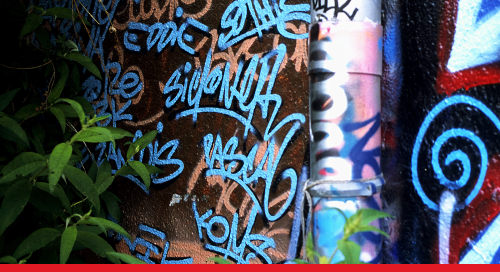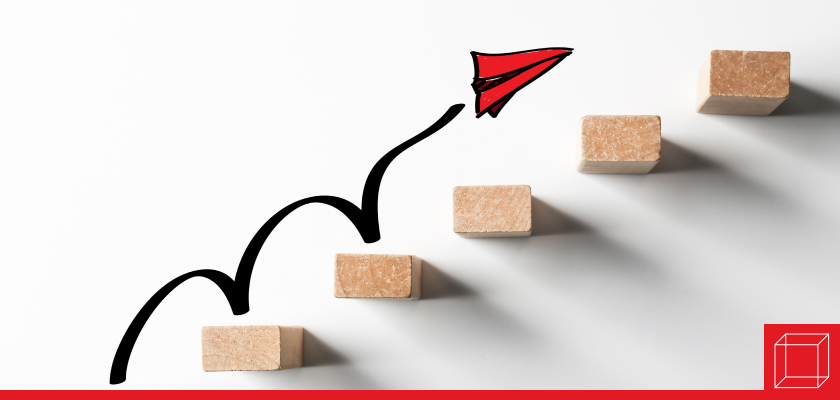Laugh First, Worry Later: How Humor Builds Resilience and Leadership
Is laughter just a distraction, or a serious strategy for resilience and leadership? This article breaks down what science and history say.

Imagine being caught in a traffic jam, a missed deadline looming, and the coffee spilled on your shirt. Now imagine laughing about it.
In a world that demands constant productivity, finding time to laugh might seem like a luxury. Yet research consistently shows that humor is not just entertainment; it’s a vital physiological and psychological resource. Laughter triggers the release of endorphins, reduces cortisol levels, and strengthens social bonds—key ingredients for resilience under stress.1, 2 As the old saying goes (or at least should go), "If you can laugh about it, you can live through it." In this article, we explore how humor functions as a natural buffer against emotional exhaustion, why it matters for long-term well-being, and how even small moments of levity can recalibrate the mind and body for better health.
Effective stress management relies not only on reducing external pressures but also on strengthening internal coping resources. Humor, as an emotion-focused coping strategy, enables us to reinterpret stressful events in less threatening ways, preserving emotional balance and promoting adaptive functioning. In other words, while the world may not get any less chaotic, a well-timed laugh can make chaos seem a little less personal.3
Humor promotes cognitive flexibility—a critical skill for reframing problems, generating creative solutions, and maintaining psychological resilience in environments of rapid change. Laughter doesn’t eliminate stressors; rather, it repositions us in relation to them, fostering a sense of control and competence even when circumstances resist control. Simply put: laugh first, worry later—if you remember what you were worried about in the first place.3
Although modern medicine increasingly recognizes the health benefits of laughter, the idea that humor is essential to human flourishing is hardly new. Long before neuroscience confirmed its power, ancient philosophers championed humor as a vital force for resilience, wisdom, and well-being.
How Ancient Wisdom Framed Humor as a Life Skill
Many of our founding philosophers understood laughter as a tool for maintaining perspective amid life’s inevitable hardships. Figures like Socrates, Plato, and Aristotle viewed humor as a crucial element of the good life. Humor can serve as a corrective to human arrogance, a bridge across differences, and a release valve for emotional tension.4
Socrates, despite his serious reputation, often used irony—a subtle form of humor—to challenge rigid thinking and invite deeper reflection. Aristotle classified wit as a form of social intelligence, describing it in the Nicomachean Ethics as a virtue that is a midpoint between buffoonery and boorishness.4 In short, the ability to laugh appropriately was seen not merely as a capacity for fun, but as a matter of wisdom, balance, and humanity.
Today, neuroscience and psychology echo these insights, confirming that positive emotional experiences, including laughter, build psychological resilience and broaden cognitive resources.5 Early analysts of the human condition intuited what modern science now measures: laughter doesn’t just make life better—it makes life work better.
While ancient wisdom recognized humor's role in human flourishing, modern science offers powerful evidence for how laughter physically transforms our stress responses.
The Neuroscience of Laughter: Rewiring the Brain for Resilience
Modern neuroscience validates what the ancients may have sensed: laughter triggers powerful physiological changes that protect the body against stress. When we laugh, the brain activates the amygdala, prefrontal cortex, and ventromedial prefrontal regions—areas associated with emotional regulation and reward processing.6
Laughter stimulates the release of endorphins, the body’s natural painkillers, and dopamine, the neurotransmitter associated with pleasure and motivation.7 At the same time, it reduces cortisol, the primary hormone linked to stress.2 This chemical cascade fosters a sense of relaxation, strengthens immune functioning, improves cardiovascular health, and enhances pain tolerance—all critical for resilience under chronic stress.
Furthermore, studies show that shared laughter strengthens social bonds, fostering a sense of belonging and emotional safety.7 These relational benefits act as a social buffer against stress, echoing Aristotle’s view that humans are deeply “social animals,” finding strength and flourishing through connection.
One of the earliest and most influential advocates for the healing power of positive humor was journalist and editor Norman Cousins, whose personal experience is chronicled in his groundbreaking account Anatomy of an Illness.8 Facing a painful and debilitating disease, Cousins famously prescribed himself high doses of laughter—through comedy films and books—as a complementary therapy. He reported measurable improvements in pain tolerance, inflammation reduction, and overall well-being, helping spark decades of inquiry into psychoneuroimmunology. Cousins’ reflections offer leaders an important lesson: the mind-body connection is real, and emotional experiences like laughter have tangible effects on physical health. His essay remains an insightful and must-read piece for leaders who aim to foster resilience, creativity, and authentic wellbeing—both in themselves and their organizations. Humor, as Cousins powerfully illustrates, is not a luxury but a biological and psychological necessity.
Understanding the science behind laughter reveals why humor is such a potent force for resilience—but knowing its power is only the first step. To fully harness its benefits, we must intentionally weave humor into our daily habits, relationships, and leadership practices.
Practical Ways to Use Humor for Well-Being and Leadership
While laughter often feels spontaneous, cultivating humor intentionally can strengthen both personal well-being and leadership effectiveness. Building positive coping habits by deliberately integrating humor into daily life and work is recommended for leaders.3 Research suggests several evidence-based strategies:
- Reframe Daily Stressors: Train yourself to find the absurd or ironic elements in daily frustrations. Cognitive reappraisal—reinterpreting stress in a humorous light—reduces emotional reactivity and builds resilience (Gross, 2002).9
- Schedule Joyful Breaks: Incorporate laughter into your schedule. Watching a brief comedy clip, exchanging light-hearted stories with colleagues, or keeping a humor journal can help disrupt chronic stress patterns (Martin, 2001).1
- Model Lightness as a Leader: Leaders who appropriately use humor foster psychological safety, encourage innovation, and enhance team cohesion.10 Humor, when respectful and inclusive, signals emotional intelligence and approachability.
- Build Social Laughter Rituals: Create regular opportunities for shared humor in teams—whether through casual celebrations, storytelling, or light-hearted rituals. Shared laughter strengthens trust and enhances group resilience.7
Model Lightness as a Leader
Leaders who intentionally use humor foster psychological safety, encourage creativity, and strengthen team resilience.10 Across history and cultures, some of the most respected leaders have shown how humor, when used wisely, can transform tense moments into opportunities for connection and collaboration.
For instance, Madeleine Albright, former U.S. Secretary of State, was known for her strategic wit during high-stakes diplomacy. She once quipped, "I have been described as 'undiplomatic,' and I have no regrets," signaling emotional intelligence and disarming tension without undermining her authority.11
Similarly, Jacinda Ardern, former Prime Minister of New Zealand, often used humor to humanize leadership during national crises. In the midst of COVID-19 updates, she candidly laughed off interruptions from her toddler on a live broadcast, remarking, "Excuse the bedtime antics—this is just real life".12 Her authentic use of humor developed trust and eased public anxiety.
Nelson Mandela, one of the most admired leaders of the twentieth century, maintained his lightness even after 27 years of imprisonment. He famously said, "If you want to make peace with your enemy, you have to work with your enemy. Then he becomes your partner. And a little laughter helps too".13 For Mandela, humor was a deliberate act of emotional strength and reconciliation.
Leader |
Context |
Use of Humor |
Leadership Outcome |
|---|---|---|---|
Madeleine Albright |
Diplomatic negotiations |
Strategic wit |
Disarmed tension, built rapport |
Jacinda Ardern |
National crisis (COVID-19 pandemic) |
Authentic, relatable humor |
Built trust, reduced public anxiety |
Nelson Mandela |
Reconciliation after imprisonment |
Lightness to foster unity |
Promoted healing and partnership |
These examples illustrate that humor in leadership is not about diminishing seriousness, but about creating space for authenticity, connection, and resilience—even in the most challenging circumstances. Thoughtful humor signals confidence, fosters belonging, and models the emotional agility necessary for modern leadership.
Integrating humor into daily practice strengthens individual and collective resilience, but ultimately, it reflects something greater—the timeless human capacity to meet life's unpredictability with grace, creativity, and courage.
Conclusion
In a world of constant change and pressure, humor is not a luxury—it is an essential life skill. As ancient philosophers suggested and modern science now confirms, laughter builds cognitive flexibility, strengthens social bonds, reduces physiological stress, and restores emotional balance. It transforms how we experience adversity, not by eliminating difficulties, but by giving us the resilience to move through them with grace, creativity, and connection.
When we "laugh first and worry later," we harness one of humanity’s oldest and most powerful tools for thriving in uncertain times. Whether reframing challenges, building healthier teams, or leading with greater emotional intelligence, humor offers a timeless strategy for both personal and professional flourishing.
After all, as Aristotle might say today: if you can laugh at life, you can live it wisely.
"The most wasted of all days is one without laughter."
Related Reading
Anatomy of an Illness, by Norman Cousins
Humor That Works, by Andrew Tarvin
The Psychology of Humor, by Roy Martin and Thomas Ford
- Martin, R. A. (2001). Humor, laughter, and physical health: Methodological issues and research findings. Psychological Bulletin, 127(4), 504–519.
- Berk, L. S., & Tan, S. A. (2006). Humor–associated laughter decreases cortisol and increases activated T lymphocytes and natural killer cell activity. Alternative Therapies in Health and Medicine, 12(2), 38–45.
- Manning, G., et al. (2016). Stress: Living and working in a changing world (3rd ed.). Routledge.
- Morris, T. V. (1997). If Aristotle ran General Motors: The new soul of business. Henry Holt and Company.
- Fredrickson, B. L. (2001). The role of positive emotions in positive psychology: The broaden-and-build theory of positive emotions. American Psychologist, 56(3), 218–226. https://doi.org/10.1037/0003-066X.56.3.218
- Mobbs, D., et al. (2003). Humor modulates the mesolimbic reward centers. Neuron, 40(5), 1041–1048.
- Dunbar, R. I. M. (2012). The social role of laughter and humor. Evolutionary Psychology, 10(4), 147470491201000. https://doi.org/10.1177/147470491201000401
- Cousins, N. (1976). Anatomy of an illness (as perceived by the patient). New England Journal of Medicine, 295(26), 1458-1463. https://doi.org/10.1056/NEJM197612232952605
- Gross, J. J. (2002). Emotion regulation: Affective, cognitive, and social consequences. Psychophysiology, 39(3), 281–291.
- Avolio, B. J., et. al. (1999). A funny thing happened on the way to the bottom line: Humor as a moderator of leadership style effects. Academy of Management Journal, 42(2), 219–227.
- Albright, M. K. (2003). Madam Secretary: A Memoir. Miramax Books.
- Ardern, J. (2020, April 19). Facebook Live update during COVID-19 lockdown.
- Mandela, N. (1994). Long Walk to Freedom: The Autobiography of Nelson Mandela. Little, Brown and Company.



